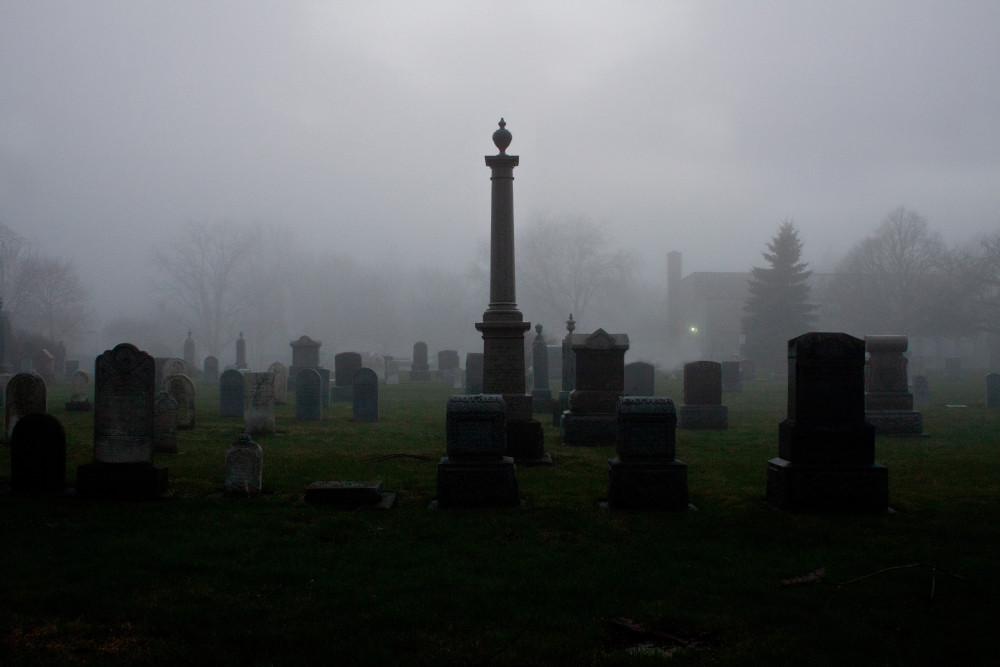
(Unsplash/Scott Rodgerson)
Two of my favorite sayings are, "You're not dead till you're dead," and, "Think outside the box; you'll have eternity to be inside the box."
This Sunday's readings focus on graves, the depths and death, but they really are about life. We all know people who are old before their time, people whose get-up-and-go got up and went, and people who act like the living dead. Many reasons exist for dispiritedness. And then we know people who are full of energy, who have a passion and zest for life, and who in the winter years of life remain ever green, ever hopeful, always enchanted with the gift of the moment. They have never lost the wonder and playfulness of the inner child who beckons them onward to new adventures and new relationships.
These types of people have discovered the flow of life, and they move with that flow. More importantly, they remain attuned to that inner life-giving spirit that is forever renewing all creation even in the midst of mass extinctions and the pain and suffering associated with global climate crisis. The spirits of our ancestors — human and non-human — remain alive in union with that sacred spirit breathed into all creation. This sacred spirit wants nothing more than to breathe new life into that which is seemingly dying or has already died, if only people are willing to allow the stones of their entombed lives to be rolled away.
Such is the call heard in the readings from Ezekiel, Paul and John. What are the stones in our own lives that need to be rolled away so that graves can become pregnant wombs and not tombs, whereby the gasps of death give way to the pangs of birth and a full flourishing of life that knows no age limits?
The reading from Ezekiel describes a promise that God makes to the exiled Judean community who have lost everything: their land, their temple, their holy city Jerusalem and their monarchal leadership. To a dispirited people exiled to Babylon and Egypt, to a people with little reason for hope, to a community scattered and dispersed, God promises renewal and new life through the divine spirit that will once again be breathed into a listless, seemingly dying people. For the Israelite people in biblical times, their physical revivification will be accompanied by a spiritual renewal. This spiritual renewal will bring into existence a restored people whose lives embody and attest to the energizing presence of the divine. Such is the promise of God made not only to an ancient people but also to all who desire to be refreshed, renewed and reinvigorated individually and communally.
The responsorial psalm is one of the penitential psalms of the ancient church. This psalm poetically describes the story of someone who is able to rise from the depths of anguish caused by sin to the assurance of divine grace and forgiveness. The psalm is a celebration of divine compassion, mercy, forgiveness and redemption. The weight and oppression of sin that crushes the spirit is never the final state. Restoration to the fullness of life is the gift waiting to be given even when one is in the deepest of dregs.
In the second reading from Paul's letter to the Romans, the focus is on the spirit as an indwelling power, the gift that allows for new possibilities and turns death into life. This "spirit" is the spirit of Christ and ultimately the spirit of the divine. As hopeful as this reading may seem, it reflects the dualism so prevalent in the Greco-Roman world and the cultural attitudes that shaped the mind of this letter writer and the letter itself. Flesh and spirit are presented as separate entities opposed to each other, with the spirit having preference over the flesh. In 21st-century spirituality, flesh and spirit work together to create an "embodied" experience of the spirit that is pure energy. This energy, identified as the spirit, can be understood as the life force and ground of all being.
Advertisement
The Gospel reading picks up imagery from the Ezekiel reading and continues the theme of the spirit as the impetus undergirding the renewal and restoration of life. Lazarus has died. His sisters, Mary and Martha, are totally distraught and angry with Jesus, whom they believe could have done something to prevent Lazarus from dying. When Jesus does arrive on the scene, he has the gravestone rolled away, and through the power of the divine indwelling within him, he is able to restore Lazarus to life. Lazarus' experience is not a resurrection. Resurrection presumes a qualitative change in the human body.
In sum, today's readings emphasize the spirit's role in our lives. Dare we allow the stones that encase and entomb the spirit be rolled away so that the spirit can be the life-giving force and transformative energy it is meant to be? No one is dead until they are dead, and life becomes interesting when lived outside the box.
[Carol J. Dempsey is a Dominican Sister of Caldwell, New Jersey, and professor of biblical studies at the University of Portland, Oregon.]
Editor's note: Sign up to receive weekly Scripture for Life emails.







